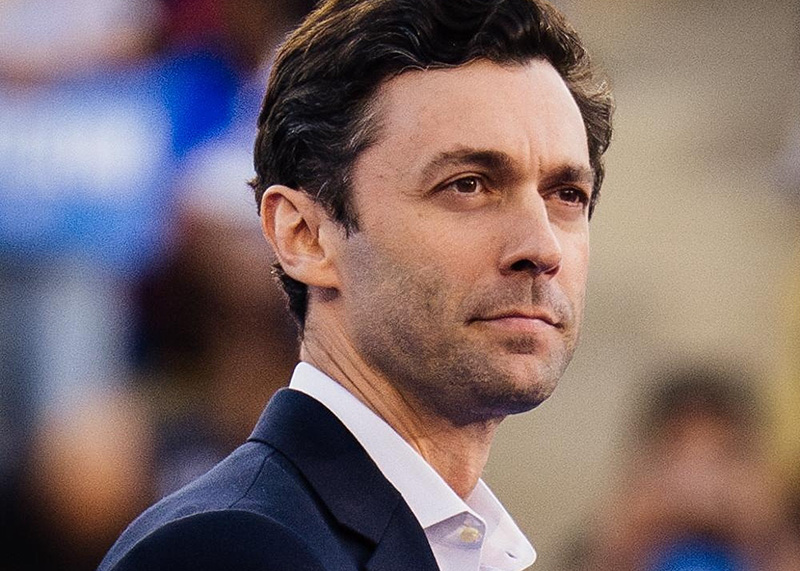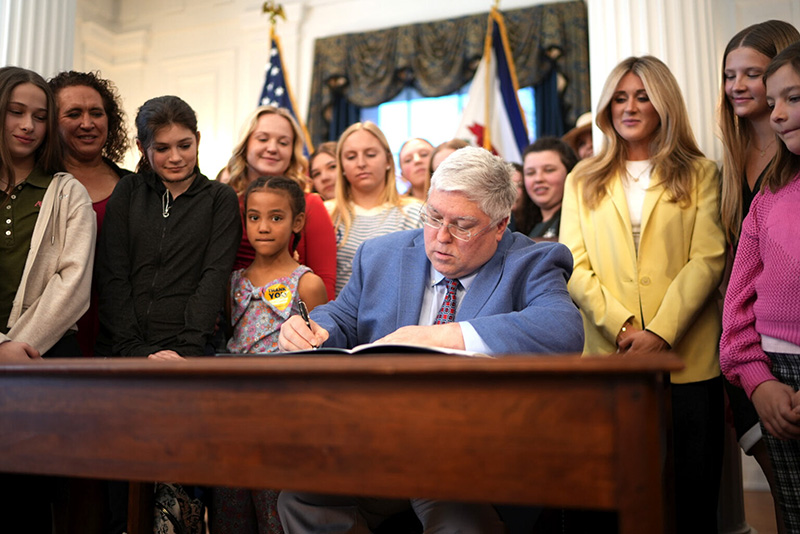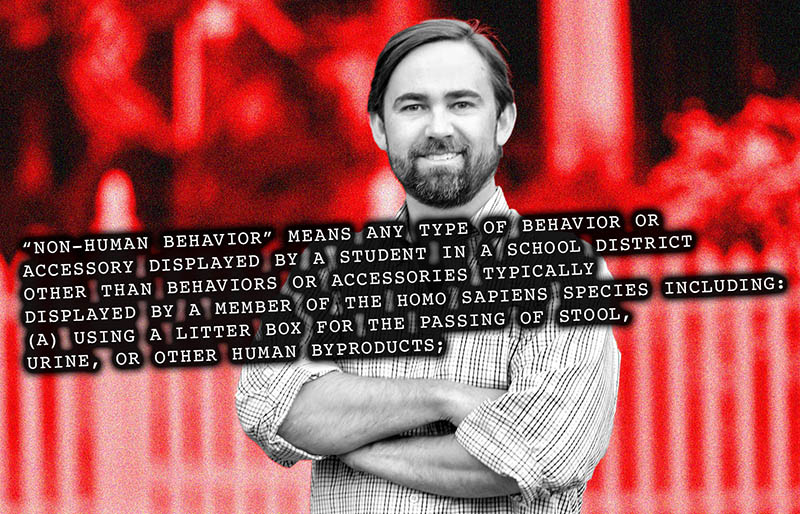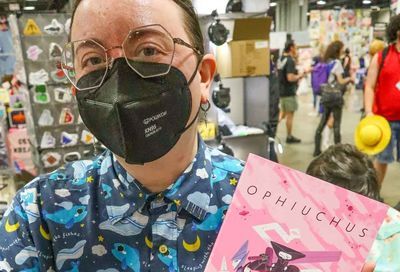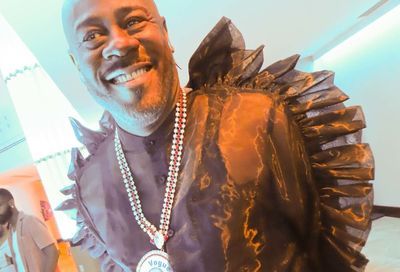Frank Talk
Barney Frank's decades-long House career has come to a close, but the gay firebrand is far from retiring
Interview by Justin Snow
Photography by Todd Franson
January 17, 2013
MW: You’re leaving Congress now as a married man. Is that something you ever thought would be possible?
FRANK: No, not remotely. I never thought I would get elected to anything. I got elected in 1972 to the Legislature in a very atypical, very upscale urban district in Boston. I never thought I could go beyond that. I got here and never thought I’d come out, but came out and it had no negative effect. I then thought I would never get a leadership position, but won by seniority to this really important chairmanship and there was not a whisper.
When I first got here and came out I would get asked to go campaign for my colleagues, but … it was almost certainly going to be within 15 miles of an ocean, because coastal politics is liberal politics. Now I go to Ohio and Missouri and Texas.
Since I filed a gay rights bill in 1972, if at any time you’d asked me, ”Well, what’s gay rights going to look like three years from now?” I would’ve been too pessimistic. When Obama came out for marriage in May I said it wasn’t going to hurt him. I didn’t realize it would be interpreted as helping him so much.
It never would’ve occurred to me that I would be married and a member of Congress. I did make a point of being married while I was still here because I wanted these people to, you know, I’m very pleased to run into some conservative Republicans and introduce them to my husband. And Jim is a very popular guy with the other spouses and we’re the only same-sex couple other members of Congress really know. I think that’s very important.
To make it kind of a teaching moment, one Republican member of Congress, a more moderate conservative, sent us a wedding present and then voted to reaffirm the Defense of Marriage Act. So I brought the present back and the response was, ”Well, why?” And I said, ”Are you kidding?”
MW: Do you think your marriage has changed any minds or made some people rethink their positions on same-sex marriage?
FRANK: Not in and of itself. I think it’s a reinforcement of good trends. What’s turned this around in the country more than anything else is coming out. With my colleagues it’s now not some abstract gay couple, it’s me and Jim, who they like, who are friendly and have seen the positive impact. People have said to me, ”Gee, you seem happier now.” Putting two faces on it is very important.
MW: You mentioned your career started with the broader gay-rights movement. Do you think there has been too much focus on this fight for same-sex marriage? Is that obscuring some of the other issues of the LGBT-rights movement?
FRANK: Not for this reason: Winning on the same-sex marriage issue was always a judicial and state-by-state issue. The competition at the federal level in 2009 and 2010 was between ENDA and ”Don’t Ask, Don’t Tell.” It was hard to get them both done and Speaker Pelosi got the impression from the LGBT community that they thought ”Don’t Ask, Don’t Tell” was more important than ENDA. And that’s why we moved on that. I don’t see marriage has in any way distracted us from other issues.
MW: Do you have any regrets looking over your long career here?
FRANK: Strangely, I would’ve voted, if I had known how it was going to turn out, for the first Iraq war. I thought President Bush Senior did a much better job than I expected. I was afraid he would do what his son did.
I obviously regret personally the involvement with a hustler, which came about when I was dealing very stupidly with the pressures of being closeted. On public-policy issues, no, other than the war.
MW: What do you think is the defining part of your legacy.
FRANK: Oh, that’s a hard one.
MW: That’s why I saved it for last.
FRANK: You can’t answer that because you look arrogant. Either you look arrogant or you try to sound humble and no one believes you.
MW: Well, what are you most proud of?
FRANK: That’s the same question. I’m very proud of when a reporter asks me a question I don’t want to answer and then tries to get me to answer it by changing it a bit I still don’t answer it.
I will say I am proud of being the first member of Congress to come out voluntarily. It troubled me some because two and half years after I voluntarily came out I had this hustler making these accusations against me, one of which was true, most of which were false. And in some people’s minds I was outed by him. But that’s just not true. So I am proud of coming out voluntarily. I think that’s important.
READ NEXT
WATCH: Ad Attacks Senator Over Trans Athlete Vote
A Republican super PAC is attacking U.S. Sen. Jon Ossoff for refusing to support a bill to enshrine a transgender sports ban into law.
By John Riley on April 8, 2025 @JRileyMW
The Republican Senate Leadership Fund is spending over a million dollars to air an ad attacking Sen. Jon Osssoff (D-Ga.) over the issue of transgender participation in sports.
The conservative super PAC's ad highlights the senator's opposition to the "Fair and Safe Athletic Opportunities Act," a congressional bill seeking to enshrine into law a ban that would prohibit transgender athletes from competing on female-designated sports teams.
The bill sought to amend Title IX, a federal law prohibiting sex discrimination in government-funded schools, to explicitly prohibit schools from allowing transgender women and girls to compete as females.
West Virginia Erases Transgender People from State Law
West Virginia Gov. Patrick Morrisey has signed a bill into law prohibiting legal recognition of transgender individuals' gender identities.
By John Riley on March 18, 2025 @JRileyMW
West Virginia Republican Gov. Patrick Morrisey signed a bill that effectively erases the existence of transgender people from state law.
Surrounded by anti-trans advocates, Morrisey signed the "Riley Gaines Act" -- named after the former collegiate swimmer-turned-anti-LGBTQ activist -- into law.
The law defines the terms "man" and "woman" based on a person's biological anatomy at the time of birth in the state code.
For all legal purposes, the state will not recognize the gender of any person who identifies outside of the gender binary or identifies as a gender that does not align with their assigned sex at birth.
GOP Bill Would Stop ‘Furries’ From Invading Texas Schools
A Texas Republican bill would prohibit students from cosplaying as "furries" and using litter boxes in classrooms.
By John Riley on March 17, 2025 @JRileyMW
A Republican lawmaker in Texas introduced a bill to prevent Texas schools from allowing students to behave in ways that mimic the "furry" subculture in classrooms and on campuses.
Furries are a minority sub-culture of adults who typically dress in costumes and roleplay behaviors characteristic of anthropomorphic animal personalities. Some furries -- though not all -- may identify as LGBTQ.
State Rep. Stan Gerdes (R-Smithville), the bill's sponsor, says that he introduced the FURRIES Act on March 13 to discourage schools from allowing students to mimic animal behavior. He says such behaviors are disruptive to learning.
Support Metro Weekly’s Journalism
These are challenging times for news organizations. And yet it’s crucial we stay active and provide vital resources and information to both our local readers and the world. So won’t you please take a moment and consider supporting Metro Weekly with a membership? For as little as $5 a month, you can help ensure Metro Weekly magazine and MetroWeekly.com remain free, viable resources as we provide the best, most diverse, culturally-resonant LGBTQ coverage in both the D.C. region and around the world. Memberships come with exclusive perks and discounts, your own personal digital delivery of each week’s magazine (and an archive), access to our Member's Lounge when it launches this fall, and exclusive members-only items like Metro Weekly Membership Mugs and Tote Bags! Check out all our membership levels here and please join us today!
The Magazine
-
Most Popular
 Signature Honors Mandy Patinkin in Emotional Celebration
Signature Honors Mandy Patinkin in Emotional Celebration  Gay Army Reserve Officer in Uniform Sex Video Scandal
Gay Army Reserve Officer in Uniform Sex Video Scandal  A Potent (and Pricey) 'Good Night, And Good Luck'
A Potent (and Pricey) 'Good Night, And Good Luck'  Sarah Snook is Astonishing in Broadway's 'Dorian Gray'
Sarah Snook is Astonishing in Broadway's 'Dorian Gray'  MISTR's Free DoxyPEP Leads to Huge Drop in STI Rates
MISTR's Free DoxyPEP Leads to Huge Drop in STI Rates  Jared Polis Signs Law Repealing Colorado's Gay Marriage Ban
Jared Polis Signs Law Repealing Colorado's Gay Marriage Ban  Becca Balint: The Pride of Vermont
Becca Balint: The Pride of Vermont  Police Barge into Walmart Restroom to Confront Butch Lesbian
Police Barge into Walmart Restroom to Confront Butch Lesbian  'Gray Pride' Protests Hungary's Ban on Gay Pride Marches
'Gray Pride' Protests Hungary's Ban on Gay Pride Marches  Hugh Bonneville Delivers a Show-Stopping Vanya
Hugh Bonneville Delivers a Show-Stopping Vanya
 Becca Balint: The Pride of Vermont
Becca Balint: The Pride of Vermont  Signature Honors Mandy Patinkin in Emotional Celebration
Signature Honors Mandy Patinkin in Emotional Celebration  MISTR's Free DoxyPEP Leads to Huge Drop in STI Rates
MISTR's Free DoxyPEP Leads to Huge Drop in STI Rates  A Potent (and Pricey) 'Good Night, And Good Luck'
A Potent (and Pricey) 'Good Night, And Good Luck'  Sarah Snook is Astonishing in Broadway's 'Dorian Gray'
Sarah Snook is Astonishing in Broadway's 'Dorian Gray'  'Gray Pride' Protests Hungary's Ban on Gay Pride Marches
'Gray Pride' Protests Hungary's Ban on Gay Pride Marches  Jared Polis Signs Law Repealing Colorado's Gay Marriage Ban
Jared Polis Signs Law Repealing Colorado's Gay Marriage Ban  White House Ignores Reporters with Pronouns in Email Signatures
White House Ignores Reporters with Pronouns in Email Signatures  White House Demands NIH Study Transgender Transition "Regret"
White House Demands NIH Study Transgender Transition "Regret"  Air Force Reverses Ban on Pronouns in Email Signatures
Air Force Reverses Ban on Pronouns in Email Signatures
Scene
Metro Weekly
Washington's LGBTQ Magazine
P.O. Box 11559
Washington, DC 20008 (202) 638-6830
About Us pageFollow Us:
· Facebook
· Twitter
· Flipboard
· YouTube
· Instagram
· RSS News | RSS SceneArchives
Copyright ©2024 Jansi LLC.



